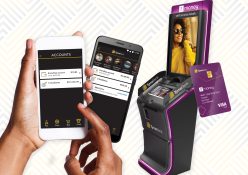Nobody is more invested in your finances than you are. Get back on track with these guidelines
Money makes the world go round, or does it just make you dizzy thinking about how to afford all the different retirement and savings plans
or home and car loans? As daunting as all this admin is, planning your finances successfully is critical for saving money, affording key expenses and achieving long-term goals such as paying for your child’s education or retiring comfortably.
What’s the Game Plan?
Everyone’s financial plan looks different, and it depends on which goals you are trying to reach. You may be planning for retirement, or for when your kids are all grown up. Draw up a personal financial plan, as well as a plan for if you’re married or in a committed relationship. Once you have decided on your financial goals, your plan should roughly have the following (which follows a monthly budget):
1. Paying off debts and spending
2. Bills and their due dates
3. Emergency account
4. Retirement savings
5. Investments (and other income)
6. Other savings (short-, mid- and long-term)
7. Insurance coverage
Having financial goals will help you stay on track. Doing proper research on the type of investments you’re putting money into is also important so that you understand the fall-and-rise patterns. Insurance plans are important as they help protect your assets. It is recommend that we have insurance for life, health, long-term disability, auto, home and business. Choosing the right insurance is vital so that you know you’ll be properly covered when you need it the most.
So TAX-ing
Ah, taxes. They’re annoying. They’re almost parasitic, but they’re not going anywhere. Tax is important when planning your finances because everything is taxed. So make sure you incorporate tax into the allocations you set up for different goals. Perhaps look at tax savings investment options, and stay up to date with tax deductions you can apply to help save money. Other than taxes, financial planning takes a lot of willpower and determination, which can be taxing in other ways. But they are necessary for the long-term – what might seem like a hassle and huge task now will pay off in the next few years. Sort of like how when you plant a seed, you constantly need to water it, change the soil, and add nutrients, but when it becomes a tree, it becomes more self-sufficient and gives back to its carer.
Don’t You Forget About Me
If you’re a fan of planning and organising things, making a financial plan can be fun! Until you forget about it. Review your financial plan every three to six months and check it against your income and spending on a weekly basis – your insurance may need to change, you may have changes in income, perhaps your investments aren’t doing too well, or you have more assets to cover. This makes life so much easier in terms of bouncing back from unplanned life occurrences, setbacks, and you can get back on track with your goals. There will be tough days, weeks and months following your journey to financial independence. This is a given since you are not seeing the rewards of your efforts immediately. But as long as you keep your reasons for why you’re planning, you’ll do just fine. Assess your mistakes, understand why you made them and plan how to not make them again. Take those lessons with you to success!
Technology helps
We won’t just leave you there, not when technology is on our side. If you’re feeling a little overwhelmed, why not try these apps that will help you plan your finances at the tap of a button:
22seven
It’s a free budgeting and investing app by Old Mutual that acts as a way to track your spending, to budget and to invest in all your accounts. You can link your bank accounts, cards, investments, loans and rewards. The app then generates a plan based on your spending, and transactions are updated and sorted. You can also make investments.
YNAB
You Need A Budget (YNAB) allows you to do just what the name says: budget. YNAB provides a proactive approach to budgeting so you set your goals, add expenses and adjust budgets as needed. You can also link a bank account to the app to keep track of transactions if you’d like to. As income is added to the app, you assign it a category (default or your own personalisation). This app needs a bit more effort than others, because you have to actively move and track your own finances.
Franc
One of the best apps for investing, Franc allows you to make investments for an annual fee of 1% (R1 for every R100 invested). You can withdraw your money at any time and add it to your bank account. The design is simple and easy to navigate with simple prompts for you to set goals, monthly contributions, date and risk types and you can track how your money is split. There’s also a risk assessment quiz to help you understand how much risk is just right.
Goodbudget
This budgeting app relies on a traditional envelope style to help users budget. This lets you track how much money is allocated to each expense and how much is spent. By using the digital envelope system, Goodbudget helps you achieve milestones, such as a down payment on a home, and helps you evaluate your income against your spending every month. There are also other budgeting resources, such as podcasts and courses, on the app to expand how it helps you.
Words by Saadiqah Schroeder
Photography: Pexels





